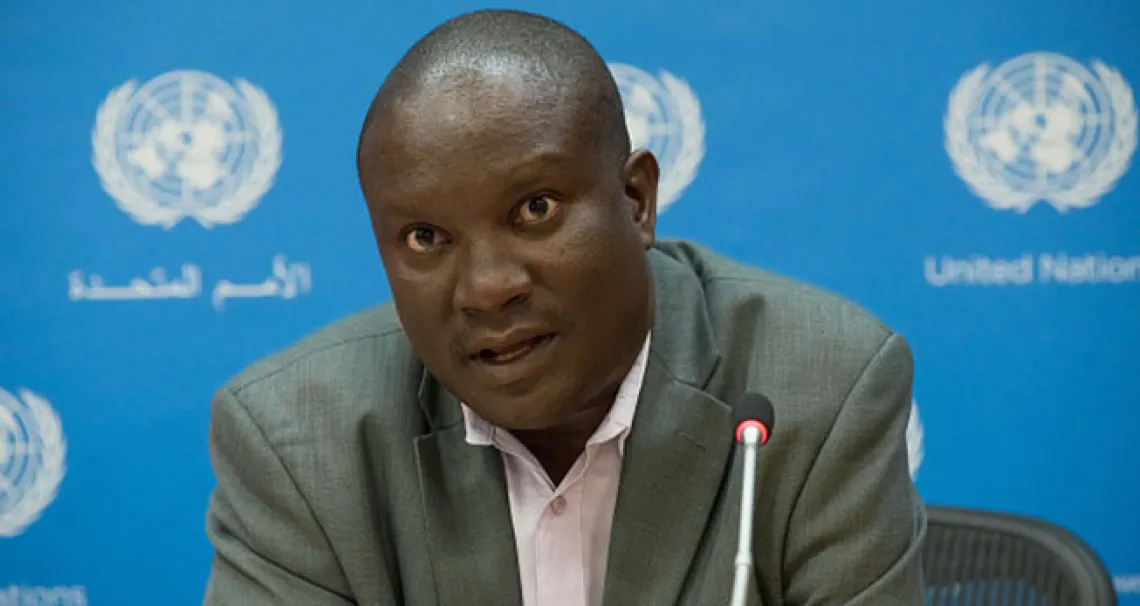Arizona Law SJD Alumnus Joins African Human Rights Commission

Kanyinke Sena, a Doctor of Juridical Science (SJD) graduate of the Indigenous Peoples Law and Policy (IPLP) Program at the James E. Rogers College of Law (Arizona Law), has been appointed as a Member of the Working Group on Indigenous Populations/Communities in Africa (Working Group). Kanyinke was appointed to the Working Group just a week before successfully defending his SJD dissertation in Tucson at IPLP.
His dissertation committee was chaired by former IPLP Faculty Co-Chair and current Dean of the University of Colorado Law School, S. James Anaya, along with IPLP faculty members Robert Williams Jr. and James Hopkins.
The Working Group was established by the African Commission on Human and Peoples’ Rights in 2000 with a mandate to conduct research, offer recommendations to member states to protect the rights of indigenous communities in Africa, and promote the recognition of the rights guaranteed to them by the African Charter on Human and Peoples’ Rights.
As a member of the Working Group, Kanyinke will use the wealth of specialized legal training he gained while at IPLP to promote the rights of indigenous communities across Africa.
Kanyinke joins fellow IPLP alumna Lesle Jansen (’09) on the Working Group. A member of the Ogiek indigenous community of Kenya, Kanyinke is a long-time advocate for inclusionary approaches to conservation policy and indigenous peoples’ rights in Africa. He currently serves as a Professor of Law at Egerton University in Kenya. Prior to his role as Member of the Working Group, Kanyinke served as chair of the United Nations Permanent Forum on Indigenous Issues from 2013–14.
Kanyinke’s SJD dissertation, Interest Convergence as an Alternative Approach to Securing Marginalized Communities’ Rights in the Context of Carbon Credit Schemes in Kenya, focuses on the international carbon emission regime and how environmental policies affect indigenous and other marginalized communities within Kenya. Kanyinke’s research concentrates on how the current carbon emission regime, reliant on carbon credit schemes, poses challenges to indigenous communities in Kenya. His dissertation contends that adequate safeguards are required to ensure that the infrastructure and other capital intensive developments required to finance carbon credit programs protect indigenous peoples’ rights and livelihoods, while reducing carbon emissions.
